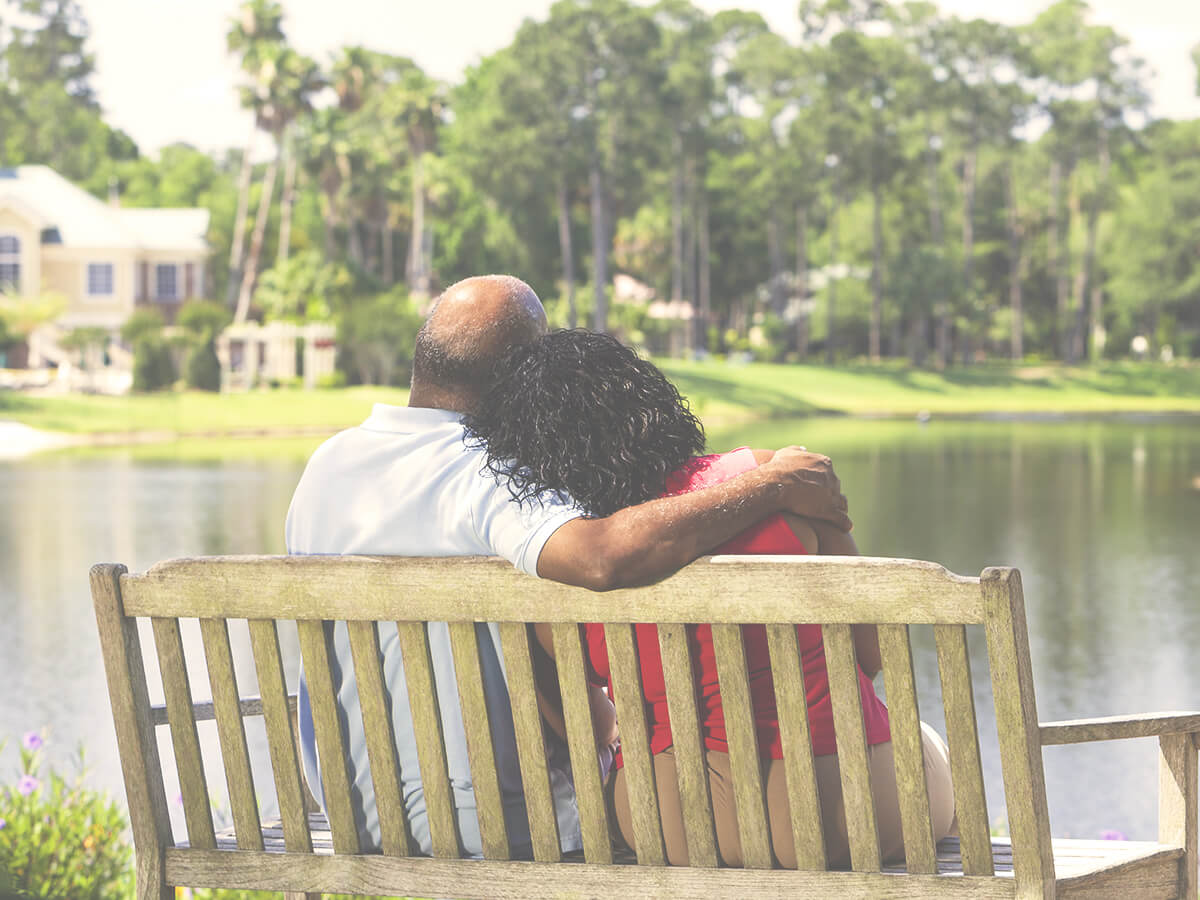Guest post by Colleen Arnold, MD
I worked in emergency medicine, family practice and hospice care over my physician career; therefore I have plenty of familiarity with death and dying. Even so, I developed a new perspective when my 57-year-old husband died from lung cancer less than six months after his diagnosis. Gleaned from that experience and the experience of my patients and their families, here are my top suggestions for journeying with someone who is dying.
Don’t push conversation. Many patients enjoy sitting in quiet, comfortable companionship. On the other hand, your loved one may prefer to talk. Some people want to discuss past mistakes to ask for forgiveness, some want to share specific desires for their funerals or final moments, and some may simply enjoy reminiscing. Let them lead the conversation and resist the urge to steer it to happier topics. Don’t trivialize anything they share (“Oh, that’s nothing to be ashamed of!”) and be respectful of their goals (“Why would anyone want to be cremated?!”) This can be a beautiful time to communicate on a very honest level. The last six months of my husband’s life were a gift for me as we talked about past and future in an intimate and profound way.
Don’t push food. At the end of life, those calories only feed the disease or the cancer, not the patient. Food can exacerbate abdominal pain or nausea, and sometimes even liquids or water make a person uncomfortable. If lips are dry, a moisturizer or warm washcloth will be soothing. If the mouth is dry, a sip of water or a few ice chips will help. Often patients develop cravings for a certain type of food, but by the time it is served, they lose their taste and appetite. My husband asked for milkshakes and burgers often, but by the time the food arrived on his plate, even looking at it made him queasy. This is very common and typical; try not to make your loved one feel they have to eat—or worse, guilty if they don’t.
Encourage reasonable activity. A walk around the block early in the illness might be fine, but near the end, a simple walk to the front porch might even be too taxing. A dying body is still fighting its disease, and that battle is exhausting. Patients nap more often because their sleep is no longer restorative and restful but rather disrupted by symptoms. They are not “sleeping their life away” but unconsciously trying to improve their wakeful moments. Let them rest. My husband fell asleep easily, but it made his time awake more alert and enjoyable.
[Related content: Download our 10 Tips for Caring for a Friend Who is Terminally Ill.]
Try to live each day for itself; put tomorrow out of your head. It is not easy to do this, but it is essential. You don’t want to look back and realize you spent the last days or weeks of someone’s life worrying about missing them in the future. Notice the beauty of each day and gently point it out: flowers blooming in the spring, the smell of rain in the summer, the sound of the birds in the yard, the faces of loved ones who come to visit. Neil and I sunned on our deck many mornings, just looking at the beauty in our own neighborhood. In the evenings we lounged in the living room and listened to our daughters’ voices or cuddled with each other and our pets. I tried to savor those moments by ignoring everything else.
Be realistic. Yes, God can work miracles, but He often chooses not to. Don’t push false hope. “You’re going to beat this!” is fine encouragement at the beginning. At some point though, it becomes clear that the disease is winning. Insisting they “keep fighting” doesn’t help. It can make a patient feel like a failure, or that he or she is letting you down. It becomes impossible for them to open up about their own emotions and leaves them feeling isolated and alone. Instead, when the time is right, give them permission to die. The dying hold on until the living let go. My husband died less than a week after his scans showed the chemo wasn’t working. At first, I thought he died so quickly because telling him took his hope away. Later, I realized that telling him also let him know it was ok to stop fighting so hard.
We knew at the time of Neil’s diagnosis that it was not curable. Every death is different, so these suggestions may or may not resonate with you. Take what you like and leave the rest. “Why did you take him away from me so soon?” I railed at God after Neil died. In reply I got the sense He was saying, “I didn’t take him from you; I brought him to Me. And I gave you six very special months.” I’ve thought about that a lot since, and I realize that although walking the final journey with someone who is dying is painful, it is also a remarkable gift.
About the author: Colleen Arnold is a family physician, a widow, and a mother of three young adult daughters. She enjoys hanging out with family, writing, reading, and walking. You can read her blog at ColleenArnold.org.
To read more guest posts written by Colleen, click here.









A beautiful article Colleen. I took care of my Mother the last months of here life. She was 89 when she passed at home where she wanted to be. Your article brings to mind memories I never want to forget.
Your advice makes a lot of sense and so practical and thoughtful in being with love ones who have a short time left to live.
I was surprised to read that Neil had lung cancer and not brain cancer.
I shall always think of him as a very young man, as that is how I have always known him.
My love to his dear family…..Ann Gautier
I am currently the caregiver for my husband, who is in End stage Heart Failure. He has refused advanced therapies, he has his advanced directives, his EMS DNR, and sees a palliative care team. I have been struggling with caregiver fatigue, and anticipatory grief. I reached out to the social worker on his palliative team, and she told me that I “needed to be less of a caregiver and more of a wife.” I was very upset by that. It’s a fine line. I am so very blessed to have had this time together, since his heart surgery 14 months ago. He was nearly dead when he had surgery.
Thank you so much for this. I needed to read it today.